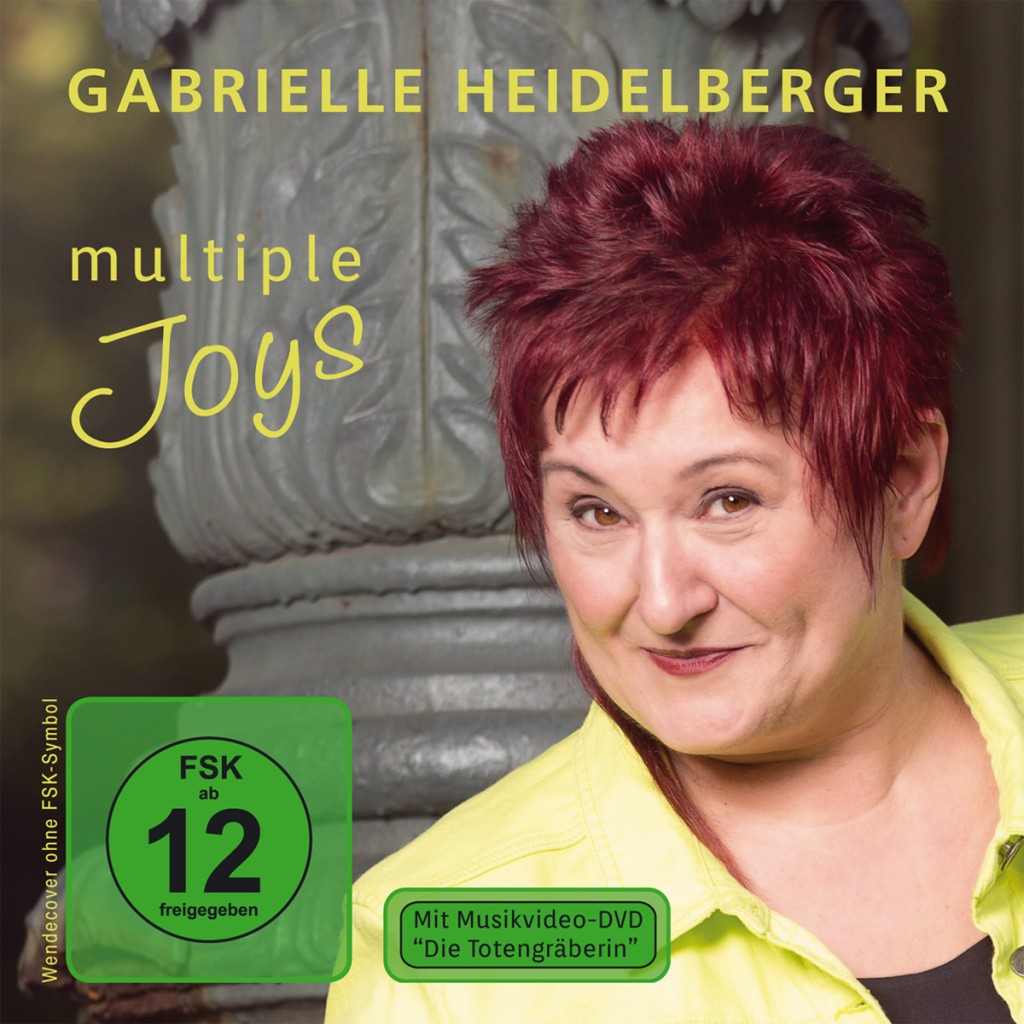Kevin Clarke
Operetta Research Center
16 January, 2014
Here’s a recital album entitled multiple Joys that mixes—with full orchestra accompaniment—Bernstein’s “Somewhere” with “Ich lade gern mir Gäste ein”, “My Funny Valentine” with “Heia, heia, in den Bergen ist mein Heimatland” and “Meine Lippen, sie küssen so heiß”? (In this order.) Not to mention “I’m always chasing rainbows”, “Misty” and “I could have danced all night” (in German as “Ich hätt’ getanzt heut’ Nacht”) with “Lippen schweigen” and “Du sollst der Kaiser meiner Seele sein”? Yes, that’s exactly what the German soprano Gabrielle Heidelberger is doing. And it is a sympathetic mixture, to be sure. Demonstrating that even old-world singers of operetta have no Berührungsängste anymore when it comes to shaking things up a little, with a knowing smile.

Heidelberger has a pleasant, warm soprano sound, secure top notes (mostly), and she is audibly eager to demonstrate a somewhat “relaxed” style, i.e. sliding in and out of notes where appropriate. Or, where she thinks it’s appropriate. It’s going to be a matter of taste whether you like this or not. I personally love such “sliding” when it’s done in the easy going way of artists such as Ella Fitzgerald. Here, the “sliding” seemed too studied for my taste to make it an ongoing joy to listen to. Compared with the great divas of the Easy Listening repertoire, Heidelberger doesn’t have that easy smile and easy charm in her voice that such songs ideally require. At least that was my impression upon listening to the album.
What about the operetta titles though, you may ask? The orchestral sound of the Donau Philharmonie Wien is glorious. But—yes, there’s a “but”—the rousing rhythmic bounce of the Csardasfürstin‘s “Heia” has been better captured by Robert Stolz, and his soprano Margit Schramm certainly is a more glamorous Sylva if you want a classical soprano interpretation.
For the more chanson approach, Fritzi Massary with her various Csardasfürstin songs remains unparalleled.
Strangely enough, Heidelberger doesn’t use any of her “sliding” for the operetta tracks, though that would have been a novel way of interpreting them.
Still, Heidelberger’s vocal lines are always secure, no wobbles near or far, no fake “nostalgia” sentiments either. But for me, the balance is somehow not right. Lucia Popp, for example, exudes more heart-warming personality in “Du sollst der Kaiser meiner Seele sein”, Elisabeth Schwarzkopf demonstrated more conscious “artiness” with such songs. Heidelberger’s approach doesn’t really offer anything new, other than the way the songs are mixed together.
Hold on! There is some new material altogether on this disc, too. “Die Totengräberin” (The Female Grave Digger) is written by Thomas Bierling, who also wrote the pop song “Der Wunsch nach Glück.”
I found these tracks enjoyable, also the “Moritat vom Frauenmörder Wurm.”
In terms of ground breaking modern operetta albums, this multiple Joys disc might not be the answer to all my unanswered prayers, because the operetta repertoire chosen here is too familiar and already available in great alternative recordings. The Broadway tracks will probably not convince real Broadway Babies because they are generally used to other types of singer’ styles. If you don’t mind someone taking a middle road, avoiding extremes (also extreme joys), this will be an album to have. I certainly would enjoy hearing Heidelberger tackle operetta in the future with that lounge style she applies elsewhere. That would indeed be novel, from a contemporary point of view.
There is a DVD included of “Die Totengräberin.” The result is a giant green notice on the cover that this album is for listeners/viewers “12 years and older.” Which is funny, in a way. Operetta with an age restriction … This might be more modern than expected!
[Thank you to Miss Heidelberger for sending a copy of this CD to the Operetta Research Center Amsterdam.]

No word that Gabrielle Heidelberger passed away on May 21st, 2024 according to her homepage.
Her husband posted the news on Facebook.